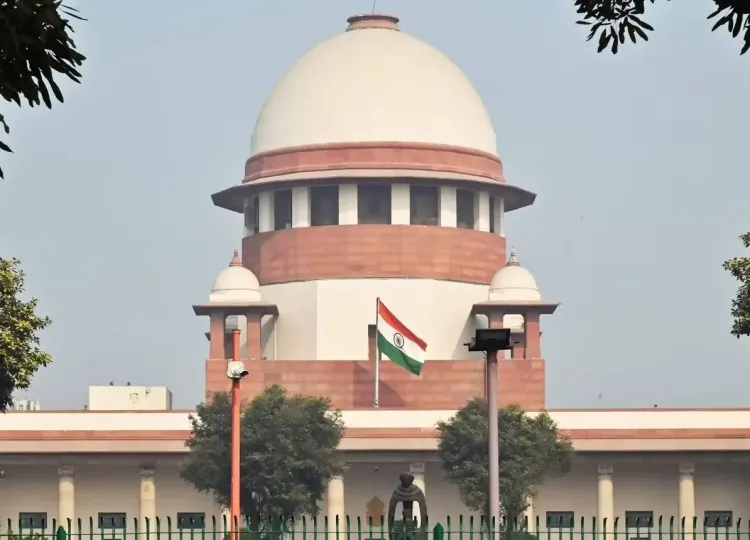Supreme Court Exonerates Taxi Driver After 7 Years in Prison

Synopsis
Key Takeaways
- The Supreme Court overturned a seven-year conviction.
- The taxi driver had no knowledge of the contraband.
- No incriminating evidence was found on him.
- Passengers fled the scene, complicating the case.
- Taxi drivers are not required to collect passenger details.
New Delhi, Jan 14 (NationPress) The Supreme Court has exonerated a taxi driver who had been incarcerated for seven years under the NDPS Act, solely because he could not provide information about the passengers carrying illicit substances.
According to the prosecution, in June 2010, the appellant’s taxi was halted by the Deputy Superintendent Police (Dy SP) in Belgaum, Karnataka, at which point the two passengers in the back seat fled. A search of the vehicle uncovered 20 kilograms of ganja packed in two visible bags. Consequently, the appellant was charged under the Narcotic Drugs and Psychotropic Substances Act, 1985 (NDPS Act) and was sentenced to ten years of rigorous imprisonment along with a fine of Rs 1,00,000.
The apex court noted that the appellant had already endured seven years and one month of imprisonment and is currently out on bail. The appellant highlighted the Dy SP's statement, which acknowledged that the vehicle in question was a taxi, and that when stopped, the driver made no attempt to flee, while the two passengers did. During the search, nothing incriminating was found on the appellant.
The appellant contended he was completely unaware of the contraband being transported in his vehicle, asserting that it likely belonged to the fleeing passengers. Therefore, as the contraband could not be directly connected to him, he should not be prosecuted.
Furthermore, the appellant argued that the proper procedure for personal searches had not been followed.
“The lower courts convicted the appellant simply because he could not provide details about the passengers. It is uncontested that the appellant was a taxi driver and that the contraband was found in his taxi while he was transporting two passengers who escaped from the scene. Therefore, it cannot be definitively stated that the appellant was carrying or colluded to carry the contraband,” stated a bench comprising Justices Pankaj Mithal and Ahsanuddin Amanullah.
Justice Mithal’s Bench added that it is unreasonable to expect taxi drivers to collect passenger details, as they typically do not ask for such information before allowing passengers to board.
“Given that no incriminating evidence was located on the appellant and he did not attempt to escape, combined with the fact that the bags containing the contraband were visible, we find no evidence linking the appellant-driver to the contraband, thus making prosecution and conviction under the NDPS Act unjustifiable,” the Supreme Court remarked, overturning the trial court's conviction which had been upheld by the Karnataka High Court.
“Consequently, the order issued by the High Court dated 27.11.2012 and the Trial Court’s decision dated 01.06.2011 are hereby annulled, and the current appeal is granted. The bail bonds and sureties are released,” ordered the apex court.









